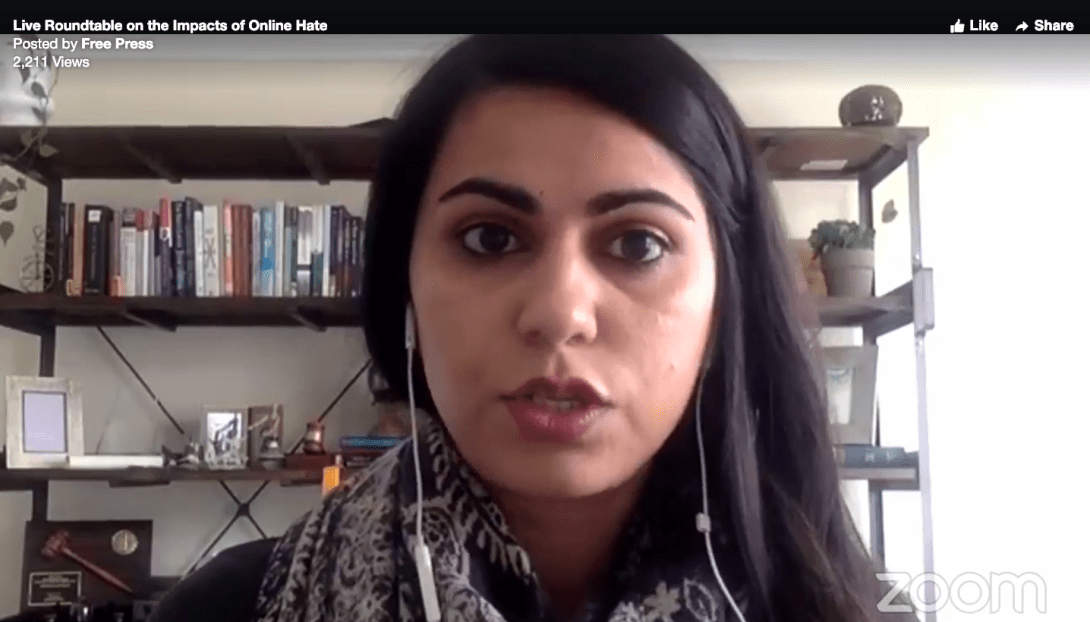A Powerful Look at the Impacts of Online Hate

Madihha Ahussain of Muslim Advocates
This week Free Press joined with other leaders of the Change the Terms coalition to present a webinar on the impacts of online hate. The conversation delved into the harms and abuses activists, people of color and other vulnerable communities have experienced as the result of hateful trolling campaigns.
The discussion was moderated by Jessica J. González, Free Press’ vice president of strategy and senior counsel and a co-founder of the coalition, which is pushing tech companies like Facebook, Google, PayPal and Twitter to disrupt hateful activities on their platforms. The all-star panel included Ana Hernández, a research fellow at Political Research Associates, Brandi Collins-Dexter from Color Of Change, Jess Campbell from the Rural Organizing Project and Madihha Ahussain from Muslim Advocates.
Field investigator Ana Hernández kicked off the conversation with a sobering look at the realities of online trolling.
She shared the story of a woman who spoke out against police-overfunding at a community meeting in her town. Following that testimony, the woman’s identity and personal details were exposed on Blue Lives Matter sites across the web, resulting in heavy online trolling, death threats and even threatening confrontations at her home and business.
In this woman’s case and countless others, Hernández reports, the threats are usually highly gendered, racialized and sexual in nature, underscoring the way that online hate works to silence women of color and gender-nonconforming people in particular.
Hernández shared that online hate often compromises progressive activists’ ability to safely maintain employment and housing, making this a matter not just of free-speech rights but of economic injustice.
Collins-Dexter underscored the fact that revenue drives algorithms, which are the foundation of how online platforms work and the mechanism for how some users are drawn deeper into hateful extremism. When online hate inspires offline violence in the forms of mass shootings and massacres like those in New Zealand, Pittsburgh, Charleston and so many other places, tech platforms become complicit. She explained, “You don’t get to make money off my dead body.”
Ahussain spoke to how online hate and anti-Muslim rhetoric aren’t limited to extremists’ online platforms but are also regularly shared by public officials and figures.
And Campbell detailed her experience as a target of Patriot Movement nationalists seeking to silence her organizing in rural areas. The online abuse she’s endured devolved into offline threats to her life — including an occasion when someone cut her brake lines. This kind of violence, Campbell said, is designed to chill involvement with decision-making in the halls of power.
The webinar’s purpose was to center humanity and lived experiences, dynamics that are often de-centered in discussions of free speech, hate and technology.
The event also served to highlight one way activists are fighting for change: More than 50 civil- and human-rights groups are part of Change the Terms’ ongoing work to get tech companies to adopt recommended policies to combat hateful activities.
Learn more at ChangeTheTerms.org and watch our powerful webinar below.